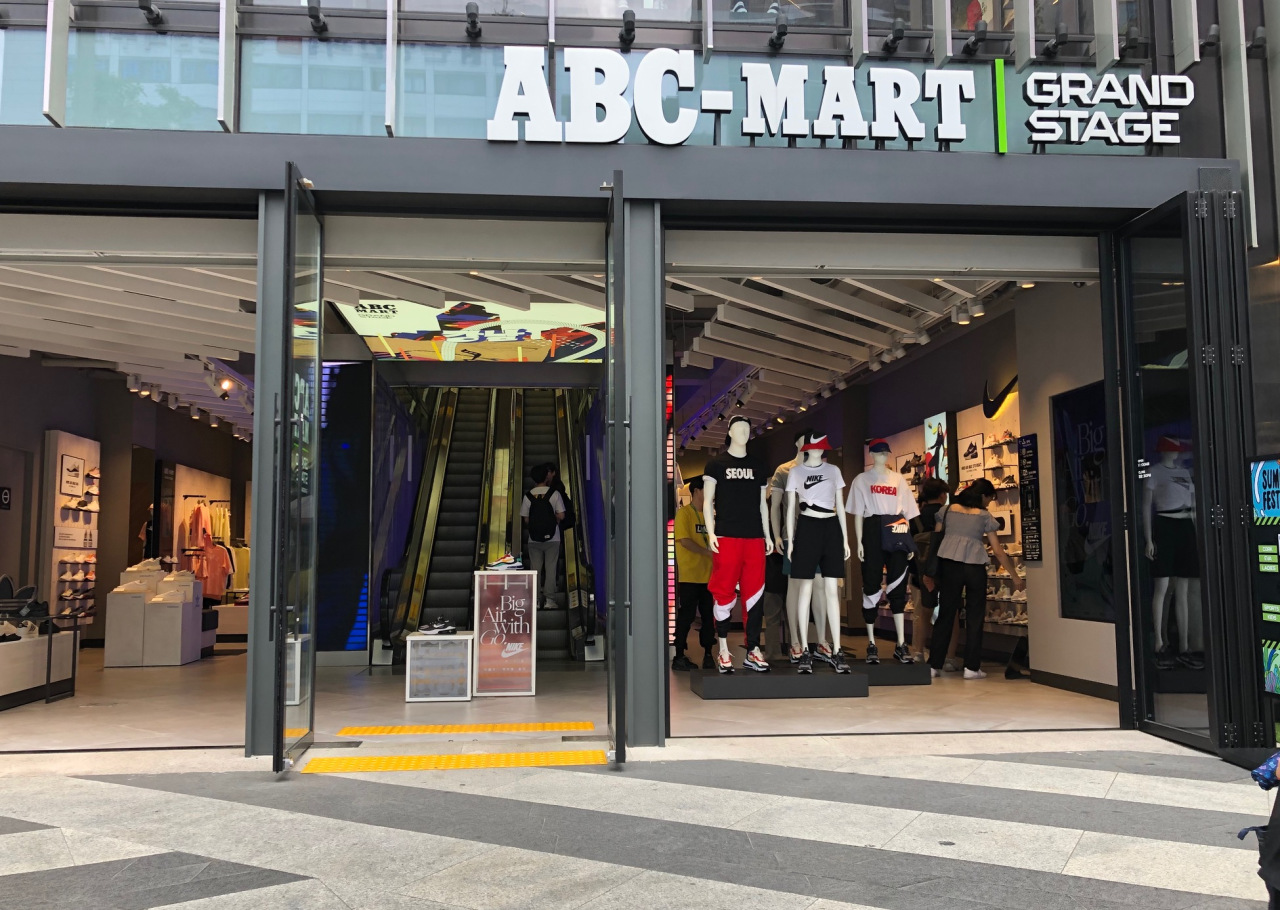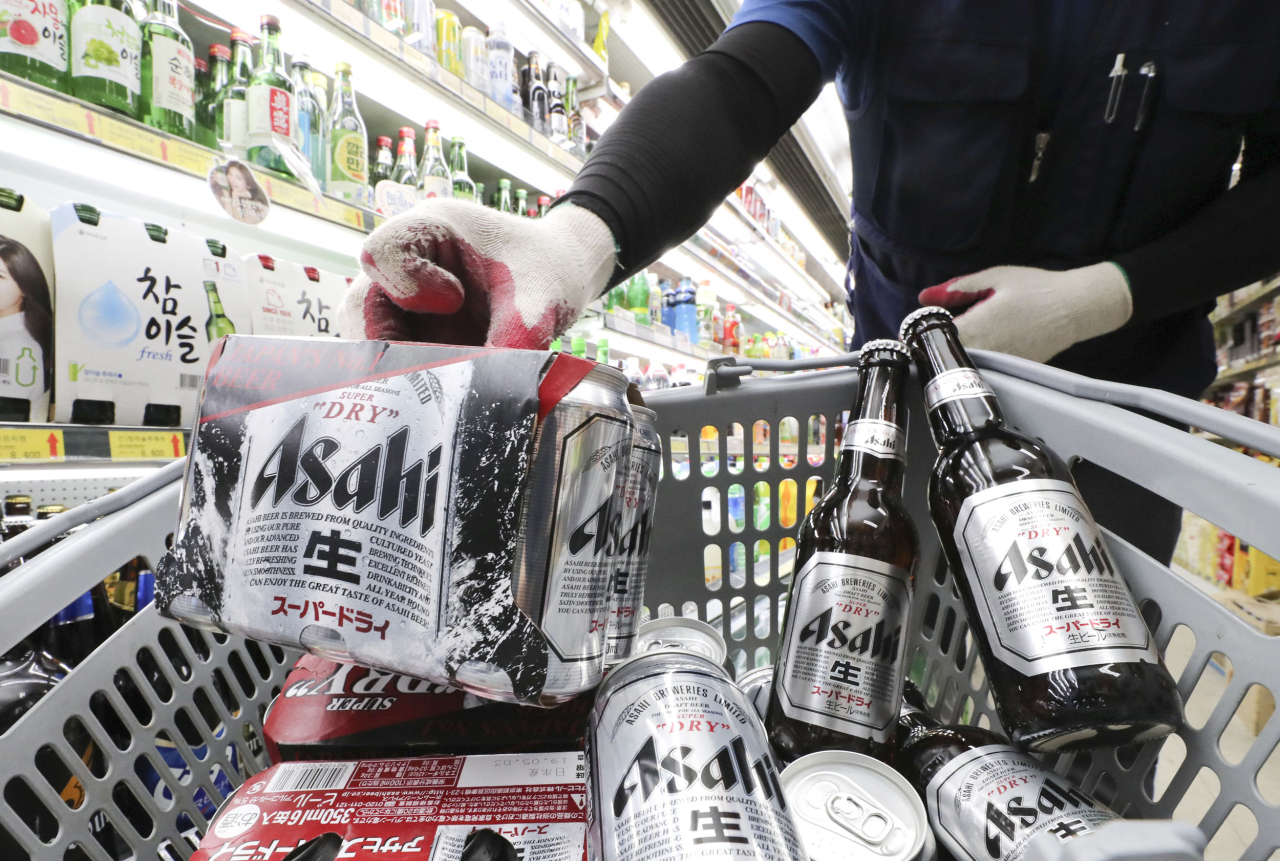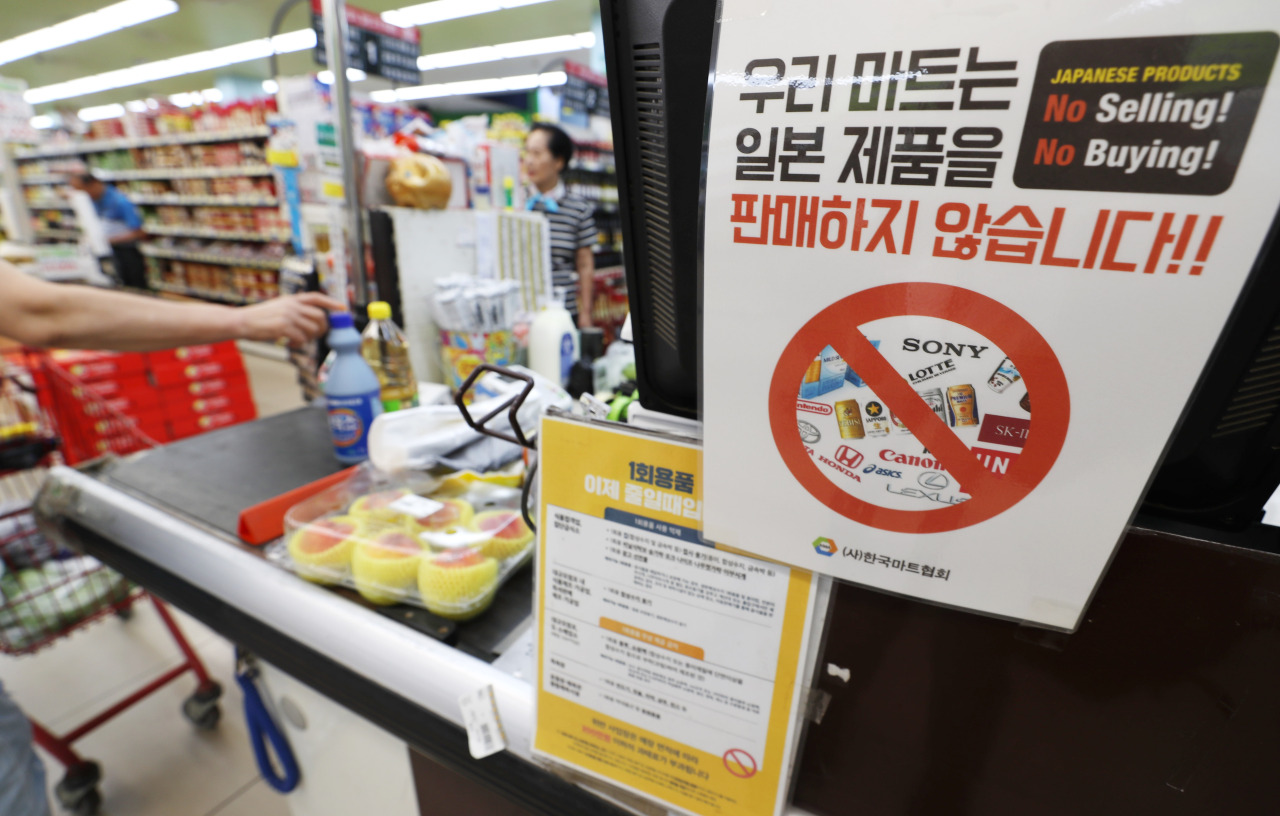[From the Scene] Rising #boycottJapan campaign faces mixed reactions
Many Japanese firms cancel promotion events due to negative public sentiment
By Kim Da-solPublished : July 10, 2019 - 16:18
Like any other ordinary day at a shopping boulevard in Gangnam, a popular district in southern Seoul, stores conducted business as usual on Monday.
A flock of shoppers were busy rifling through items at summer discount deal corners and walking down the aisle of new products at stores, including ABC Mart, a Japan-owned shoes and clothing company.
“A call for boycott campaigns (on Japanese goods) doesn’t really affect me,” a shopper told the Korea Herald.
“In the same way that I don’t really think of Korea when I buy a pair of Samsung headphones, I don’t really think of Japan when I buy Japanese products. I’m just looking for designs (I like).”
A flock of shoppers were busy rifling through items at summer discount deal corners and walking down the aisle of new products at stores, including ABC Mart, a Japan-owned shoes and clothing company.
“A call for boycott campaigns (on Japanese goods) doesn’t really affect me,” a shopper told the Korea Herald.
“In the same way that I don’t really think of Korea when I buy a pair of Samsung headphones, I don’t really think of Japan when I buy Japanese products. I’m just looking for designs (I like).”

The latest conflict between Korea and Japan, this time over compensation for forced labor during World War II, has been gripping the business community here. Japan has removed Korea from the white list of importers of its hi-tech materials used as key components in semiconductors and display panels of local conglomerates.
Japan’s move, citing that its materials could reach North Korea, immediately sparked rage among citizens here, leading to calls for an anti-Japan campaign.
The hashtag #boycottJapan has spread fast on social media platforms, urging a boycott of Japanese trips and consumer products.
The list of “Korean alternative” products to replace Japanese goods quickly circulated online -- such as those encouraging people to shop at Spao or Top 10, instead of Uniqlo, and stop drinking Asahi beer.
Figures also showed that the sales of Japanese beer brands has inched down.
E-mart said that sales of Japanese beer brands from July 1 to 7 decreased by 14.3 percent compared to the previous week. Sales of other imported and local beer brands, inched up by 2.9 percent and 3.6 percent, respectively.
Celebrities, such as actors, were even condemned online for posting pictures of their travel to Tokyo, with some commenting it was inappropriate.
Offline, some stores were also seen carrying signs saying that they will not be selling Japanese brands.
“Since Japan has taken a diplomatic stand on the economic conflict, as a Korean I feel obliged to at least take part in showing our protest,” said Yu Ho-young, a 44-year-old office worker in Seoul.
“At the least, I would be choosing Terra instead of Asahi when I buy beer at a convenience store,” he said, adding he is not sure how strict he would be in avoiding Japanese products.

Amid intense the sentiments here, a string of Japanese companies have also canceled or downplayed scheduled promotional events.
A Japan-based tobacco company canceled its product launching press conference slated for Thursday, citing inclement weather. Some Japanese automotive companies here are considering canceling or reducing the scale of their planned promotional events in light of the aggravated sentiment here, according to industry insiders.
Boycotts of Japanese brands have often taken place in Korea in the past.
In 2001, some 40 civic groups led a boycott of Japanese products in retaliation against its revision of state history textbooks and distortion of history. In 2005, local merchants declared they would not sell Japanese products in protest against the designation of Takeshima Day, which Japan intended was to strengthen its territorial claims on the Dokdo islets. Takeshima is the Japanese name for Dokdo.
The boycott campaign in 2013 showed some impact, with a 20-30 percent sales decline of Japanese cars here, as Korean merchants joined forces, lashing back at the Shinzo Abe government.
“When you look at the history of boycott of Japanese goods here, the results were not too effective,” said professor Lee Eun-hee of consumer business from Inha University.
The brand boycott, by nature, often expired after a certain time, such as when boycotts against companies that manufactured toxic humidifier disinfectants died down after a while. With the latest conflict stemming from a historical issue, the impact would be even shorter, Lee suggested.
Such sentiments were shared by some customers who expressed ambivalence to the #boycottJapan movement.
“I’m not sure if many would even know the difference between a Japanese store and a Korean store,” a customer at a Japanese retail outlet Muji told the Korea Herald.
“For instance, people are already mistaking Daiso as a Japanese brand and are threatening to boycott it,” she said.

Some consumers believed that broader geopolitical problems should be solved by politicians and not by regular citizens.
“These issues require smarter political movements and diplomatic negotiations rather than individual campaigns by normal people,” said 26-year-old graduate school student Kim Na-ra, pointing out that it was wrong for Japan to tackle the political issue with economic retaliation that can impact livelihoods of ordinary citizens.
As the two governments raise their stakes in the heightened tension, with Tokyo hinting at additional measures and Seoul taking the issue to the international community, some industry observers said the boycott campaign, this time, could be different.
For one, the latest movement is voluntarily organized or supported by individuals online, instead of being led by certain civic groups, they said.
“Boycott on Japanese goods is quickly spreading online, and it is the young generation who are sharing the list and igniting public sentiments, unlike in the past when boycotts or civic protests were organized by civic groups and government-led campaigns,” said professor Seol Dong-hoon of Sociology from Chonbuk University.
He added that it is critical for consumers to voluntarily take actions to exercise their right to perform ethical buying.
Market insiders, meanwhile, also pointed to the characteristics of a product boycott that poses a dilemma of its adverse effects.
“We understand that negative public sentiments are building up nationwide, but if you really look at the matter, it will be the Korean staff who work at those firms that will also suffer from sales decline and even withdrawal from the local market. Hopefully that would not happen, because in the worst-case scenario, it will be Koreans who will lose jobs,” said an industry insider who works at a Japanese automotive company here.
By Kim Da-sol (ddd@heraldcorp.com)
Intern reporter Timonthy Im contributed to this article. -- Ed.



















![[Today’s K-pop] BTS pop-up event to come to Seoul](http://res.heraldm.com/phpwas/restmb_idxmake.php?idx=642&simg=/content/image/2024/04/17/20240417050734_0.jpg&u=)